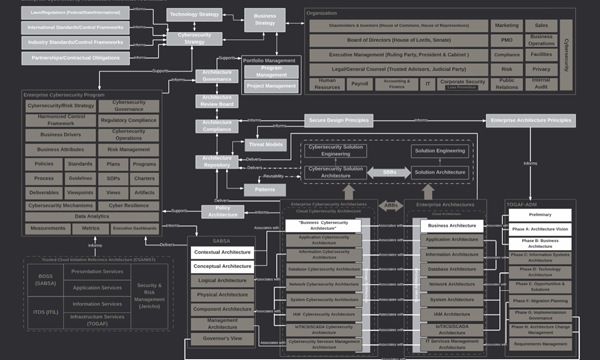
As mobile applications become integral to healthcare and government operations, the importance of security testing cannot be overstated. With sensitive patient data and critical government information often accessed via mobile apps, vulnerabilities can lead to severe consequences, including data breaches, financial loss, and compromised safety. A staggering 43% of data breaches in healthcare are due to mobile app vulnerabilities, highlighting the urgent need for rigorous penetration testing.
In this blog, we will discuss why mobile applications in critical sectors require thorough security testing and explore the benefits of conducting end-to-end mobile security assessments.
The Need for Security Testing in Healthcare and Government Mobile Apps
Mobile applications in the healthcare and government sectors face unique security challenges that make them attractive targets for cybercriminals:
1. Sensitive Data Handling
Healthcare applications handle sensitive patient information, including personal health records, payment details, and insurance data. In government, applications may manage classified information, identity records, and sensitive communications. A breach of this data can lead to identity theft, financial fraud, and a loss of public trust.
2. Regulatory Compliance
Both sectors are subject to stringent regulations aimed at protecting sensitive data. For instance, the Health Insurance Portability and Accountability Act (HIPAA) mandates that healthcare providers ensure the confidentiality and security of patient information. Government agencies must also comply with regulations like FISMA and NIST guidelines. Failure to adhere to these regulations can result in significant fines and legal repercussions.
3. Rapid Adoption of Mobile Technology
The rapid shift towards mobile technology in both sectors has outpaced the development of secure coding practices. Many organizations prioritize speed to market over security, leading to apps that may contain exploitable vulnerabilities.
4. Increased Cyber Threats
Cybercriminals increasingly target mobile applications due to their growing adoption. In 2023 alone, the number of mobile malware attacks increased by 50%, with many targeting healthcare and government apps. Common threats include malware injection, insecure data storage, and improper authentication.
The Benefits of End-to-End Mobile Security Assessments
Conducting comprehensive mobile application penetration testing can significantly enhance the security posture of healthcare and government apps. Here are some key benefits of end-to-end mobile security assessments:
1. Identifying Vulnerabilities
A thorough pentest helps identify security weaknesses before malicious actors can exploit them. Common vulnerabilities in mobile applications include:
* Insecure data storage: Storing sensitive information without proper encryption can expose user data.
* Improper authentication: Weak authentication methods may allow unauthorized users to access sensitive information.
* Insecure communication: Failing to encrypt data in transit can expose sensitive information to interception.
By identifying these vulnerabilities, organizations can remediate them before deployment, significantly reducing the risk of data breaches.
2. Enhancing Compliance
Regular mobile app security assessments help organizations adhere to industry regulations and standards. By identifying and addressing vulnerabilities, companies can demonstrate compliance with regulations like HIPAA and FISMA, thereby avoiding hefty fines and reputational damage.
3. Building User Trust
In the healthcare and government sectors, user trust is paramount. A history of data breaches can severely damage public confidence in an organization. By prioritizing security through regular penetration testing, organizations can reassure users that their sensitive information is safeguarded, thereby enhancing their reputation.
4. Improving Incident Response Preparedness
Mobile application penetration testing simulates real-world attacks, allowing organizations to test their incident response capabilities. By evaluating how well teams can detect, respond to, and recover from a breach, organizations can improve their overall incident response plans, reducing potential damage in the event of an actual attack.
5. Cost-Effectiveness
Investing in proactive mobile app security testing can save organizations money in the long run. The costs associated with data breaches—such as legal fees, regulatory fines, and reputational damage—can be staggering. According to the Ponemon Institute, the average cost of a data breach is $4.45 million, while effective security measures can mitigate these expenses.
Real-Life Case Study: A Healthcare App Breach
In 2020, a popular healthcare app that provided telehealth services experienced a data breach that exposed the personal information of over 3 million users. The app had inadequate security measures, allowing attackers to access sensitive health records through an unsecured API.
The fallout from this breach included regulatory investigations, a significant loss of user trust, and financial repercussions estimated at $1.2 million in fines alone. This incident underscores the critical importance of thorough mobile application security testing in safeguarding sensitive data.
Conclusion: Prioritize Mobile Security for Healthcare and Government Apps
As mobile applications continue to play a vital role in healthcare and government sectors, organizations must prioritize security to protect sensitive data and maintain user trust. Conducting thorough mobile application penetration testing is essential to identify vulnerabilities, enhance compliance, and build a robust security posture.
Investing in end-to-end mobile security assessments is not just a regulatory requirement—it is a strategic imperative for safeguarding the future of healthcare and government services. Ensure your mobile applications are secure and capable of withstanding today’s cyber threats.
Is your mobile application secure? Contact us today to learn how our mobile application penetration testing services can help identify vulnerabilities and protect sensitive data in your healthcare or government app.
Comments
No Comments Found.
Search Here



